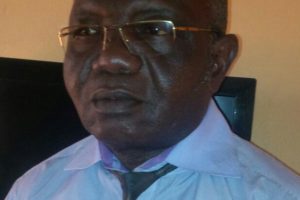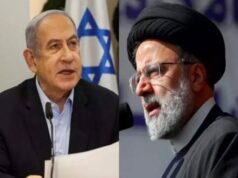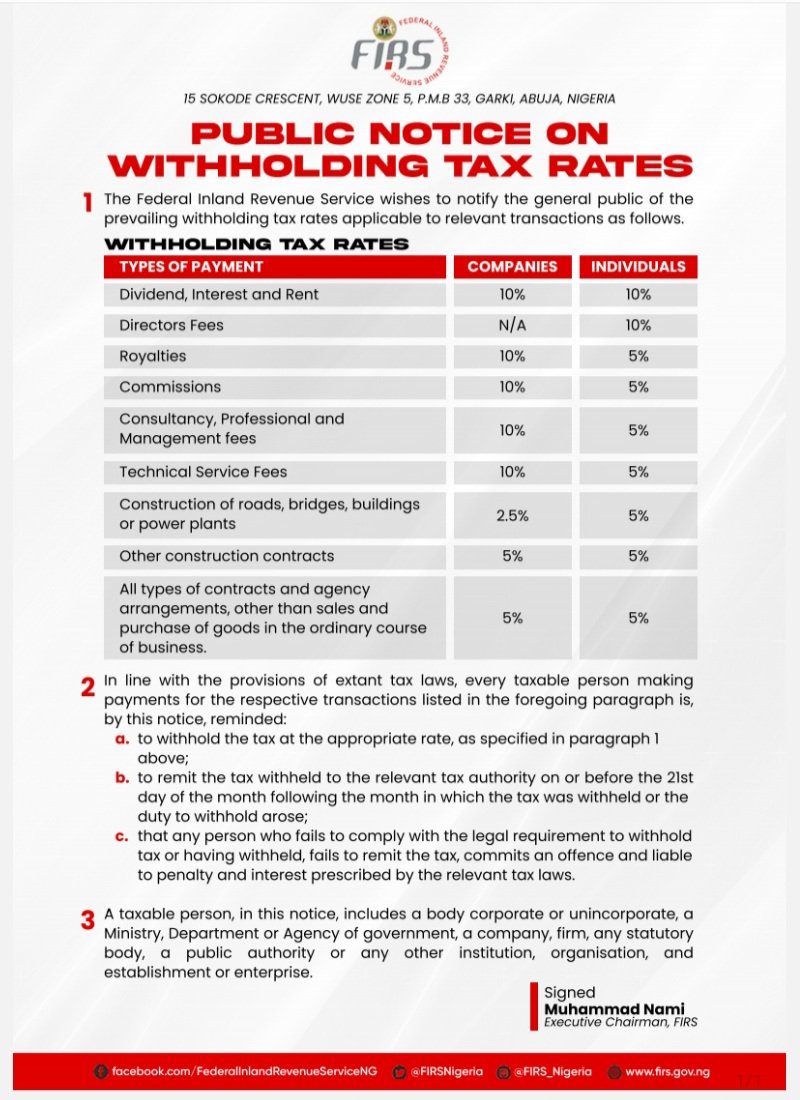
This article is a follow-up to my previous one, first published in June 2016. The various points canvassed at that time remain substantially relevant till date. In fact, the tempo has increased in dimension,
The agitation for a Biafra Republic has assumed a frightening proportion. Marginalization has given rise to this agitation with inflammatory utterances, hate-speeches from both sides of the divide, unnecessary heating up the polity, with activities bordering on felony.
NnamdiKanu and his Separatist group known as Indigenous People of Biafra (IPOB) now have their own Biafra Army. These young men are certainly progressing in error and they need to retrace their steps before it is too late.
Professor Chinua Achebe, (of blessed memory) a renowned literary giant, a highly respected son of Igboland, has a message for his Igbo kindred. I quote him thus:
“…the consequences of the men with ideas leaving the stage to those described as –money-miss-road-ragamuffins men and women with no records of service or achievement, men and women who else where should be in jail, taking up the centre stage and do
ing what they know best, creating a maelstrom, ratcheting up the volume of vitriol and creating a discordant orchestration of artistic chaos in the land…”
Is there any tribe in Nigeria today that is not complaining of marginalization? The Yorubas, a major tribe, have their own fair taste of marginalization. Ditto the Hausa/Fulanis, the Ijaws, the Urohbos, the Ebiras, the Okuns, the Ogoris, theIgalas, all of Kogi State. The Ikwerres, the Ishan people. The Idomas, the Tivs, the Jukuns of Taraba. The litany of tribes complaining of marginalization is endless.
The agitation for the actualization of a Biafra Republic should not be construed to mean same as restructuring of the Nigerian State. That narrative should be clearly understood. These are two ends of a long pole and I support one end of it – restructuring.
But the balkanization (I am not referring to restructuring here) of Nigeria is not the answer to this agitation. Do you know why? Let us profit from Professor Wole Soyinka’s recent incisive exposition on this matter
“….The poor Hausa man is riding Okada. The poor Ibo man is riding Okada. The poor Yoruba man is riding Okada
The poor Hausa man sleeps under the bridge as Alamajiri. The poor Yoruba man sleeps under the bridge as Alaye. The poor Ibo man sleeps under the bridge as agbero.
It is pertinent to note that the poor from all ethnic groups in Nigeria have everything in common and so is the rich.Do not allow the agitation of an Ibo man who lives in UK or USA for Biafra cause the killing of the Ibo man in Adamawa. The rich hate us that much.Do not allow the Alhaji whose children are living abroad to persuade you to go and start killing on the street of Kaduna.
The problem in the country is not the agitation of any ethnic group but the unity of the elite and the disunity of the masses.
How many times have you taken your agitation to question your local government Chairmen?
Why have you not asked your Governors through agitation how they spent bailout fund?
Why have you not agitated against that government official whose mansions you go to beg for help?…”
When the Yoruba people felt marginalized in the scheme of things, they did not resort to ‘hate speeches’ or engage in unnecessary heating up the polity for balkanization of the country. Rather, they settled for strategic planning method and it worked. In Kogi State, for instance, the West and the Central Senatorial Zones had been marginalized since the inception of the State. The Eastern flank of the State had ruled that long. The Central Senatorial Zone went into a subtle partnership, conscientious planning and fervently turned to God. At least, today, we can get to see the answer. A young-man from the Central is now in charge in Lugard house. This was achieved without any sign of disrespect to the other two senatorial districts in the State and no unscrupulous utterances. Let me to say this, My reference to the Eastern flank of Kogi State in this narrative should not be construed as a note of vilification. Certainly not.That is not the purpose. The purpose is indeed to draw empirical lesson for us to lear and apply in our respective struggle for a just and egalitarian society.
In fact, Otunba Dele Momodu, Publisher of Ovation Magazine, appropriately captured, in his recent exposition on this matter, and brought to the fore the historical value of this conversation. Please read:
“Let’s highlight some permutations. Had the Igbos worked well with the South West and the North Central, it might have been easier for an Igbo Presidency to materialise. Just imagine if they could lock down the entire South where majority are Christians and the Southern Muslims even marry Christians, the next job would be to align with the so-called minorities scattered across the Northern belts. I’m certain many of our youths are unaware that Chief ObafemiAwolowo once performed such experiment when he chose an Igbo man, Phillip Umeadi, as his running mate. He would probably have succeeded if he had secured massive votes from the South East and South South. All he would have needed was to poach from mostly North East and North Central. Alas, the audacious experiment failed woefully. Since then no Southern candidate of note has ever dared to pick a running mate from the South.
“There is an enduring lesson to learn from the people of South West Nigeria. In 1981, Chief MoshoodAbiola was frustrated out of a political party in which he invested so much time, energy and resources, the National Party of Nigeria (NPN). He went back home quietly to lick his wounds. He had enough cash to try and destabilise the polity at the time but he opted to up his philanthropic work. He reached out to every nook and cranny of Nigeria helping the needy, contributing to schools, churches, mosques, creating jobs, investing in agriculture, sports and so on. From being one of the most hated Nigerians, he became one of the most loved. It was only a matter of time before his chickens came home to roost. By the time he launched his Presidential bid in 1993, even his most vociferous critics knew he was unstoppable. Chief Abiola won the election, but lost the mandate freely given to him by every part of Nigeria. The Nigerian Mafia, connived and conspired to rob him of his hard-fought victory. Every effort to regain his mandate was rebuffed and frustrated. The strategy was simple and effective. Reduce Abiola’s victory to a Yoruba affair, repeat all kinds of lies till they become believable, and a pan-Nigerian mandate was burnt into ashes. Abiola was abandoned and left in the lurch. Still the Yoruba people did not seek revenge or retaliation. They fought and without firing a shot extracted a form of justice as payback. The destroyers of June 12 could not believe the resilience of the people. In frustration and desperation, they sought and found a perfect ally to dump the stolen mandate on since they didn’t want Abiola by all means. General OlusegunObasanjo served this purpose and it was a coronation of sorts when he reincarnated as civilian President.
Let us remind ourselves that a nation without history will go into extinction. This brings me to what the “common sense” Senator Ben Murray Bruce, said on the night of Sunday, April 24, 2016 at the “Man of the Year Award Night” organized by Silverbird TV in Lagos, Senator Ben Bruce told his audience and I quote”
“As I walked into this venue, this evening, two young ladies approached me and asked what is happening here? I said, it is an award night to honour some Nigerians, who had done well in their respective fields and indeed impacted on the lives of Nigerians. Among them is Major GeneralTundeIdiagbon of blessed memory. The ladies, one, may be about 27years and the other about 22years, retorted, surprisingly, you mean Maj-Gen TundeIdigagbon will be coming? That is what we get when a nation has no history, when we fail to teach history in our schools”. (end of the quote – apologies to the distinguished Senator, if I did not capture his statement verbatim, but the message is quite clear). For purposes of education, MajorGeneralBabatundeAbdullbakiIdigagbon died on March 24, 1999”.
In a short video interview granted to a foreign female correspondence, Chief Chukwuemeka OdumegwuOjukwu (of blessed and unforgotten memory) said that it will be a mistake for anyone to provoke another war.
Correspondent – But Chief Ojukwu you led the first one?
Chief Ojukwu: – Yes, I know. A lot of people will say but you were leading the first one. I will say to everyone, I led proudly the first one. (But) I do not think a second one is necessary. We should have learnt from the first one, otherwise the dead will have beento no avail. (end of the interview).
That was the man who began the Biafra struggle in the mid-60s as a young military officer serving in the Nigerian Army. A struggle which culminated into a full blown civil war with its attendant dared consequences, with over 3million Nigerians dead and properties of unimaginable proportion destroyed from both Federal and Biafran sides. The war, which in the eyes of the International community was clearly needless and available, if revolutionary ideas had not been promoted over and above the love and growth of our compatriots and the nation per se. The interview above was granted in the late80s, perhaps with the advance in age Chief EmekaOjukwu saw that struggle in a different light. In his considered opinion the struggle “was indeed no longer necessary”.
We do know revolutionary ideas have always aggravated situations. “A young man thinks about the size of the man in a fight, whereas an elder thinks of the size of the fight”, our elders told us long ago. “It is the beginning of a fight you know, but you never know the end of it”. Painfully, this kind of adage has no meaning to our children of today. It simply does not fly.
Shall we ask our elders, our grandfathers in Igbo-land their experiences during the civil war? Or in recent times, do we ask our brothers and sisters from Ife/Modakeke inOsun State, their sad experience during their communal clashes? It is indeed a very sad and painful experience.
Thank God, today, common-sense has prevailed in Ife/Modakeke. There is harmony. Mutual respect has returned. There now exists in Ile Oduduwa peace. Please, let us perish the thought of anther civil war in this country. Dim Ojukwu told us many years ago, “Biafra is dead”.
Need we mention the senseless Rwandan genocide, which began like play and grew exponentially out of control. Truly, it was not anticipated that it will escalate to the proportion it got on April 7, 1994 when it began between the Tutsi and Hutus. Consequently, countless innocent souls were lost and uncountable properties destroyed. Till date, it is still a bad reference in the history of Rwanda and the world. The genocide would have been avoided if dialogue had been encouraged and brought to the front-burner.
Bernard Balogun wrote from Wuse District, in Abuja, and can be reached via
bernardbalogun1@yahoo.com, 0803.787.9275. [myad]








